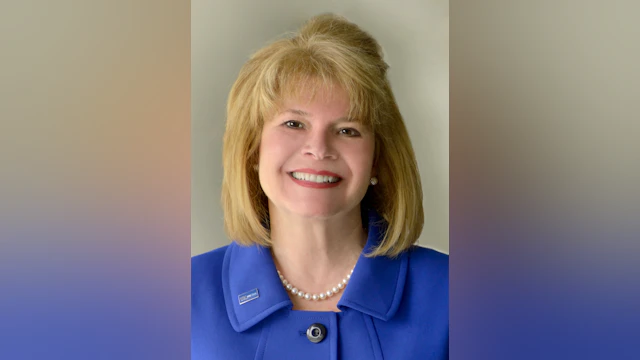Often, it takes personal adversities and tragedies to drive a person’s passion to do meaningful and purposeful work, and that holds true for me. After 45 years in nursing as an acute and critical care advanced practitioner, educator, researcher, and academic leader, I shifted my focus to a new mission: to raise awareness about mental health and well-being to help prevent suicide. Many have asked why.
Steve Jobs, legendary founder and CEO of Apple, who died from Stage 4 pancreatic cancer, said “You can’t connect the dots looking forward, you can only connect them looking backwards.” Looking back on the dots that drove my nursing career, it all lines up with one pivotal time that shaped who I am today. My brother and I lost our mother when she was 39 years old, and we were 9 and 10 years old. A smoker, she died from brain cancer; our father, a field artillery Army officer and heavy smoker, lost his way, making poor choices after our mother’s death. This included alcohol abuse. Our peaceful home became a daily firestorm. Yet we found our own ways to overcome adversity. After our father died at age 62, from metastatic lung cancer and liver cirrhosis, I dedicated my professional life to addressing tobacco control.
During those formative years after our mother died, our paternal grandmother became a significant influence in our lives. A strong woman with a commanding presence, she was determined to seek custody of me and my brother, so we could be raised “properly.” Her presence in our lives was steadfast. What my brother and I did not know, as we played in a little storage house behind our grandmother’s home, was that our favorite play area was the location where our grandfather had taken his life by suicide.
We did not know our paternal grandfather. By the time our mother died, our grandmother had a second husband, who died shortly after their marriage from a chronic illness. It was our grandmother’s third husband who my brother and I knew – a gentle, kind man who was completely devoted to our grandmother, who at times could have a domineering presence.
Fortunately, my brother and I learned early in our adult life that the best path for our mental health and wellness was to be ever cognizant of the genetic pitfalls we faced, and not to hold our challenges or worries inside. I often think about our grandmother’s controlling nature. As a critical care nurse, that’s what we do – we “take control” to save lives. But as an academic nurse leader, I have learned the necessary balance on how best to react and influence personal and professional challenges for myself and others.
Shortly into my deanship tenure, as an academic nurse leader, suicide once again hit close to home for me – not once, but twice. Our 14-year-old grand-niece attempted to take her life. Shortly after that, I missed subtle cues with one of my former Acute Care Nurse Practitioner students. This was someone who had entered one of the top 10 Ph.D. nursing programs in the country, and who served as a student leader. However, she was deeply depressed, and wanted to end her life. Luckily, her Ph.D. program director saved her life by recognizing that she was missing class; papers were being turned in late; and that her physical appearance had become unkempt. When confronted, she broke down in tears. She had been trying to be super mom, nurse, and Ph.D. student, but she was running on empty, and afraid to say, “I’m struggling and need help.”
Both my grand-niece and former graduate student are doing well now. But too many times, we hear about students who suffer in silence: impressive young people who had always envisioned a career in nursing, unexpectedly taking their lives, and leaving their loved ones in a state of shock and bewilderment. Many were beloved by the patients, supervisors, and co-workers, none of whom ever suspected the student was experiencing pain and anguish underneath the façade of dedication and compassion.
In 2018, over 100 junior nursing students shared a group project with me related to their mental health status as they approached their senior year. Over the preceding three months, the vast majority of them reported being sad or depressed, experiencing feelings of exclusion and worthlessness, and afraid to reach out for help. The results of this group project sparked an “all in” revolution to address student mental health and wellness as a top strategic priority for our college, state affiliations and national organizations.
There is no doubt in my mind that as time goes on, I will connect more and more dots related to the pandemic and the toll it has taken on the mental health of nurses. We need to BELIEVE the health of nurses is a critical link for achieving sustainable quality nursing care; BEGIN challenging the belief that nurses are superheroes who can do everything; and BECOME the authentic voice for raising mental health awareness and preventing nurse suicide. As nurses, we care for others. As a profession, we must also learn to care for ourselves, and each other.
Please visit afsp.org/isp to learn more about how AFSP’s Interactive Screening Program can be implemented to support health care professionals. You can also visit afsp.org/hcp to learn more about resources for health care professionals.
